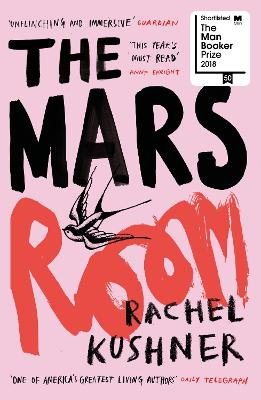Reviewed by clementine on
Reading updates
- Started reading
- 16 August, 2019: Finished reading
- 16 August, 2019: Reviewed

SHORTLISTED FOR THE BOOKER PRIZE
THE NEW YORK TIMES BESTSELLER
A fearless and heartbreaking novel about love, friendship and incarceration, from the author of the internationally acclaimed The Flamethrowers.
‘Astounding… this year’s must-read’ ANNE ENRIGHT
Romy Hall is starting two consecutive life sentences at Stanville Women’s Correctional Facility. Her crime? The killing of her stalker.
Inside awaits a world where women must hustle and fight for the bare essentials. Outside: the San Francisco of her youth. The Mars Room strip club where she was once a dancer. Her seven-year-old son, Jackson.
As Romy forms friendships over liquor brewed in socks and stories shared through sewage pipes her future seems to unfurl in one long, unwavering line – until news from beyond the prison bars forces Romy to try and outrun her destiny.
* Pre-order Rachel Kushner’s new novel, Creation Lake, now *
‘Breathtaking’ VOGUE
‘One of our most outstanding modern writers’ STYLIST
‘Gritty, empathetic, finely rendered’ MARGARET ATWOOD (on Twitter)